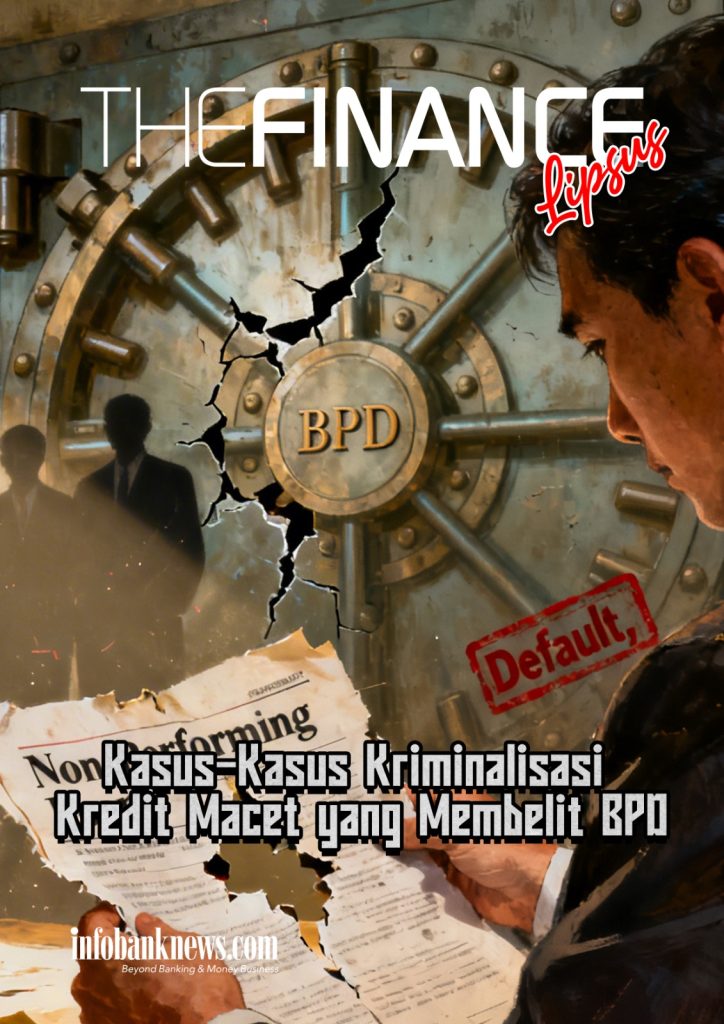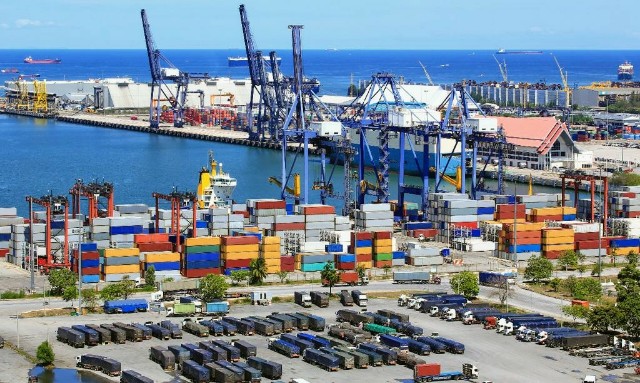By Eko B. Supriyanto Editor-in-Chief of Infobank
FINALLY AFTER TENS OF YEARS, the struggle of state-owned banks has succeeded. The article on state losses regarding the write-off of bad debts is no longer a “ghost” for state-owned bankers. So far, despite the existence of PP 33/2006 which emphasizes that BUMN receivables are not classified as state receivables, bankers still dare not do it.
The government is drafting a government regulation (PP) on bad debt write-offs and write-offs. This refers to Law No. 4/2003 on Financial Sector Development and Strengthening (P2SK). Articles 250 and 251 state that bad debts of state-owned banks and/or non-bank financial institutions to MSMEs can be written off and written off to support the smooth provision of access to financing to MSMEs.
For decades, the rubber article harming the state has become a “ghost” that continues to exist. The Supreme Audit Agency (BPK) is the most frightening “ghost” because it is equipped with Law No. 17/2003 on State Finance which still mentions write-offs as detrimental to the state. Furthermore, Government Regulation in Lieu of Law (Perppu) Number 49 of 1960 concerning State Receivables.
So, even though there is PP 33/2006, it still becomes barren. The position of PP is still lower than the law. Moreover, the rubber articles still mention the elimination of state receivables (credit) is a state loss, or corruption. Naturally, bankers are afraid to do it because it could be 10 years later with the new regime could be prosecuted.
According to the Infobank Institute, the write-off policy for state-owned banks is based on at least five important things. One, the number of ultra-micro, micro and small debtors who have been “stalled” is increasing every year. The number has reached 246,324 debtors in collectibility five and 912,259 debtors in collectibility two categories.
Two, the cleanup of “stalled” debtors can revive the good name of the debtor. Originally blacklisted in the Financial Information Service System (SLIK), with this write-off, debtors will recover their names. Debtors can get new credit again because their names have been cleared.
Three, the bank’s financial statements, both on-balance sheet and off-balance sheet, are also clean and not preoccupied with bad loans that are “stalled” – which could be a collection cost greater than the result. The issue of bad debtors is not just about costs, but also about human resources.
Four, in many cases the cost of collection is often greater than the result of the loan that has been written off. For example, the loan is only Rp1,000,000, but the cost to collect is more than that, as well as being protracted. In the end, the loan is left “stalled”.
Five, state-owned banks that have run out of write-offs can more easily provide new loans to debtors from the write-off program. Moreover, the increase in the growth of MSME customers is not proportional to the increase in the volume of Kredit Usaha Rakyat (KUR), and of course the 30% credit provision to the MSME sector.
This write-off policy certainly raises political questions, why is it given in the political year after years of pressure from state-owned banks? Is this a “gift” for people who have bad credit? Then, after that, will the credit program be poured again and then many bad debts will be written off again before the elections in the following periods? In any case, this practice has been carried out in private banks, or is it because it is “forgiveness” for bad debtors to get new loans so that the KUR target can be achieved?
Indeed, the practice of write-offs has been carried out by private banks. However, sometimes write-offs in private banks are often transferred to third parties, and even dead debtors are still visited by debt collectors for consumption loans. However, the practice of write-offs in private banks is common, with no accusations of harming the state.
This write-off can be done if the losses incurred are not state losses. Not the result of patgulipat or fictitious credit. All of this can be done as long as it can be proven that the action is based on good faith, laws and regulations, articles of association, and principles of good corporate governance.
The write-off is a good step, but it is important to keep an eye on moral hazard. Banks should not blindly extend credit after write-offs, because they can be written off anyway. The principle of prudence must still be held and become the “spirit” for bankers because state-owned banks still write off a lot, even though it has been reserved. Risk calculation is important.
And, don’t let the good news of this bad credit write-off rule damage the mentality of debtors who have credit to write themselves off. This is only natural because of the concept of banking in the world. The treatment of bad debtors is lighter than good debtors who are current. Good debtors who have been paying interest and loan principal often have to feel jealous of bad debtors who are given a lot of convenience. Let’s think about it, good debtors who are doing well have never been given facilities, while “bad” debtors are written off and exempted. Don’t invite other moral hazard. It is necessary to think about holiday payments or interest deductions for current debtors that have never been offered by banks. Good customers are treated “bad”, bad customers are treated “good”. (*)













